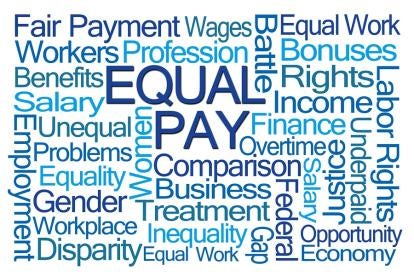On October 24 2016, one day before the initial effective date, a preliminary injunction was issued by the U.S. District Court for the Eastern District of Texas which precludes the federal government nationwide from enforcing or implementing a significant portion of Executive Order 13673, issued by President Obama on July 31, 2014, and the related enforcement guidance (together referred to as the "Fair Pay and Safe Workplace" executive order and regulations). The court enjoined those portions of the executive order and regulations that imposed new reporting requirements of labor "violations" and restricted the availability of arbitration. The court found that the major regulations requiring reporting by certain contractors of non-final labor violation decisions: 1) were preempted by other federal labor laws; 2) violated a contractor's First Amendment right to free speech (right not to be forced to speak); and 3) violated a contractor's due process rights.
"The Order and Rule appear to conflict directly with every one of the labor laws they purport to invoke by permitting disqualification based solely upon ‘administrative merits determinations’ that are nothing more than allegations of fault asserted by agency employees and do not constitute final agency findings of any violations at all. ...[A]gency employees who are assigned to administer these labor laws issue thousands of complaints, cause findings, wage notices, and citations each year, many of which are dismissed or significantly reduced after they are contested, often after lengthy proceedings. There is no statutory basis to treat these ‘administrative merits decisions’ as final and binding while they are still being contested or when they are settled without admission of fault. Thus, it appears to be a denial of fundamental statutory and constitutional rights for the Executive Order and FAR to so act."
The regulations were characterized by the court as "complex, cumbersome and costly…and which hamper the efficiency without quantifiable benefits."
The dispute over the legality of the law may continue through the appeal process. In addition, because these regulations are the result of a presidential executive order, it is uncertain whether the new administration will choose to retain these mandates, including the paycheck transparency requirement. However, for the time being, the paycheck transparency requirements of the law are slated to take effect on January 1, 2017.
What are the paycheck transparency requirements?
To whom is it applicable, and when? The paycheck transparency provisions of the order apply to contractors and subcontractors covered by the Davis Bacon Act, the Service Contract Act, and the Fair Labor Standards Act under new or newly-negotiated contracts that exceed $500,000 dated January 1, 2017 or later (other than commercially available off-the-shelf items provided by subcontractors).
What notice is required? Contractors must incorporate the "substance" of the paycheck transparency clause into all applicable subcontracts.
What wage statements are required? For all employees working under the covered contract or subcontract:
-
Contractors and subcontractors must provide a document for each pay period with an individual's: 1) hours worked; 2) overtime hours; 3) rate of pay; 4) gross pay; and 5) itemization of any addition to or deduction from the gross pay (e.g. bonuses, awards, shift differentials, taxes, and voluntary contribution deductions).
-
Contractors and subcontractors can avoid detailing the hours worked for exempt employees as long as they provide written notice to those employees of their exempt status, either before the worker starts working on the contract or in the first wage statement under the contract.
-
The wage statement may be provided electronically if the worker can access it through a computer device, system, or network provided or made available by the contractor.
-
If the wage statement is not provided weekly (but instead bi-weekly or semi-monthly), the contractor or subcontractor must nevertheless break down the hours worked and overtime worked to correspond to the pay period for which the overtime is calculated and paid (which will almost always be weekly).
-
If a significant portion of the contractor or subcontractor's workforce is not fluent in English, the wage statement must also be provided in the language in which that portion of the workforce is fluent.
-
Those contractors in Alaska, California, Connecticut, the District of Columbia, Hawaii, New York, and Oregon are permitted to instead follow state law, as it is substantially similar.
Independent Contractor Notice: Contractors and subcontractors who use independent contractors are required to provide each worker with a written document (separate from and in addition to any independent contractor agreement) informing of the independent contractor status, either at the establishment of the relationship or when s/he begins work on the covered contract.






 i
i

